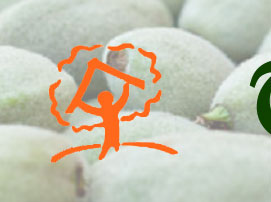|
|
Filling Gaps
As the UN Secretary-General stated on World Day of Social Justice 2014, “The gap between the poorest and the wealthiest around the world is wide and growing. This situation is not only between countries but within them, including many of the most prosperous.”
As we’ve been seeing through the development of the new global development policies,
More
|
|
|
|
|
Arab States’ Regional Habitat III Report
HIC-HLRN was represented at the 11–12 January 2016 Expert Group Meeting (EGM) on the draft Habitat III report for the Arab region, organized by UN-Habitat Regional Office for Arab States (Cairo), New York-based Habitat III Secretariat, and UN ESCWA (Beirut).HLRN Legal Researcher Ahmed Mansour reported on his experience as “one of the most productive events that I ever have participated
More
|
|
Egypt’s Urban Challenges in Light of Habitat III
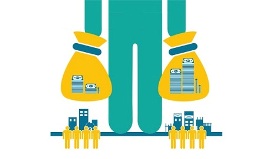 The United Nations Conference on Housing and Sustainable Urban Development, Habitat III, is fast approaching in October 2016.In the Egyptian context, one starting point toward assessing progress of the set of commitments in the previous Habitat II Agenda, is to analyze the impact of housing policies and public resource distribution on urban inequality.
For decades, Egypt has been facing a housing
More
The United Nations Conference on Housing and Sustainable Urban Development, Habitat III, is fast approaching in October 2016.In the Egyptian context, one starting point toward assessing progress of the set of commitments in the previous Habitat II Agenda, is to analyze the impact of housing policies and public resource distribution on urban inequality.
For decades, Egypt has been facing a housing
More
|
|
ETOs and BDS: The Extraterritorial Human Rights Obligations of Local Governments
 The extraterritorial human rights obligations (ETOs) of states through their central governments has been the primary concern of the ETO discourse that led to the Maastricht Principles [Arabic] in 2011. However, local authorities and local governments [Arabic] concurrently face choices in their relations with external parties, including vendors, contractors and other cities.
This level of ETO application has become especially relevant
More
The extraterritorial human rights obligations (ETOs) of states through their central governments has been the primary concern of the ETO discourse that led to the Maastricht Principles [Arabic] in 2011. However, local authorities and local governments [Arabic] concurrently face choices in their relations with external parties, including vendors, contractors and other cities.
This level of ETO application has become especially relevant
More
|
|
Transitional Justice: Last Resort to End Yemen’s War
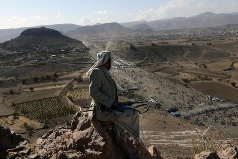 Since 2014, the civil war in Yemen has left over 2.4 million displaced persons who fled their homes, further compounding the priorities of transitional justice that faded away because of the seemingly intractable conflicts. However, each passing day points to transitional justice (TJ) as the last resort for ending Yemen’s conflictand repairing the country.
The UN Security Council (SC) concurred with
More
Since 2014, the civil war in Yemen has left over 2.4 million displaced persons who fled their homes, further compounding the priorities of transitional justice that faded away because of the seemingly intractable conflicts. However, each passing day points to transitional justice (TJ) as the last resort for ending Yemen’s conflictand repairing the country.
The UN Security Council (SC) concurred with
More
|
|
Fishermen’s Cooperatives: Double Suffering
 The Egyptian Association for Collective Rights organized a series of workshops to introduce cooperatives and their importance as a foundation for economic empowerment, particularly for poor groups that suffer from economic and social marginalization. The workshops also aimed at discussing the challenges faced by Egypt’s cooperative movement. These challenges include the multiple legislations that regulate the cooperative movement, and the
More
The Egyptian Association for Collective Rights organized a series of workshops to introduce cooperatives and their importance as a foundation for economic empowerment, particularly for poor groups that suffer from economic and social marginalization. The workshops also aimed at discussing the challenges faced by Egypt’s cooperative movement. These challenges include the multiple legislations that regulate the cooperative movement, and the
More
|
|
Cooperatives as a Tool for Economic Empowerment
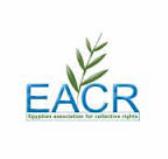 In the framework of the campaign adopted by the Egyptian Association for Collective Rights (EACR) to acquaint the public with cooperatives and solidarity economy, the Association organized several seminars that were attended by many civil society organizations and a number of farmers and experts concerned with the conditions of the cooperative movement to discuss the movement and the challenges it
More
In the framework of the campaign adopted by the Egyptian Association for Collective Rights (EACR) to acquaint the public with cooperatives and solidarity economy, the Association organized several seminars that were attended by many civil society organizations and a number of farmers and experts concerned with the conditions of the cooperative movement to discuss the movement and the challenges it
More
|
|
CSOs’ Eye on FAO Regional Conference
 In the Lebanese capital, Beirut, Green Line Association hosted civil society organizations (CSOs) from across the Near East and North Africa region on 7–9 April in preparation for the Food and Agriculture Organization (FAO) 33rd Regional Ministerial Conference for the Near East and North Africa to be held in Rome during 9–13 May. Regional affiliates of the International Planning Committee
More
In the Lebanese capital, Beirut, Green Line Association hosted civil society organizations (CSOs) from across the Near East and North Africa region on 7–9 April in preparation for the Food and Agriculture Organization (FAO) 33rd Regional Ministerial Conference for the Near East and North Africa to be held in Rome during 9–13 May. Regional affiliates of the International Planning Committee
More
|
|
|
|
|
|
|
Cooling Our Planet (COP21): Frontline Communities Lead the Struggle
 Small-scale food producers and consumers, including peasants, indigenous peoples, hunters and gatherers, family farmers, rural workers, herders and pastoralists, fisherfolk and urban inhabitants all form the “frontline communities” increasingly confronted by the grabbing of natural resources and by systematic violations of human rights. This dynamic is integrally linked to, and directly affected by the impacts of climate destruction. The climate
More
Small-scale food producers and consumers, including peasants, indigenous peoples, hunters and gatherers, family farmers, rural workers, herders and pastoralists, fisherfolk and urban inhabitants all form the “frontline communities” increasingly confronted by the grabbing of natural resources and by systematic violations of human rights. This dynamic is integrally linked to, and directly affected by the impacts of climate destruction. The climate
More
|
Housing in The City We Need, Barcelona Urban Thinkers Campus
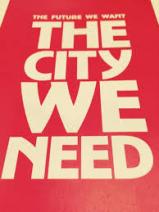
In one of the official gatherings intended to inform Habitat III, an “Urban Thinkers Campus” (UTC) in Barcelona (November 2015), focused on the core commitment of the Habitat Agenda: ensuring the progressive realization of the human right to adequate housing. In that convivial meeting, participants insisted that the human right remain a core part of the Habitat Agenda when renewed
More
|
|
Land in the SDGs
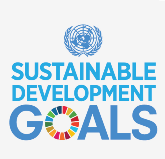
Much has been said, and much remains unknown about the implementation of the new 2030 Sustainable Development Agenda, [Arabic] adopted at the UN General Assembly on 25 September 2015.
Replacing and claiming to improve upon the Millennium Development Goals that expired last year, the new agenda boasts five innovations that make this global attempt at equitable development more effective.
It also addresses
More
|
|
Right to the City in Africa

JOHANNESBURG—“This is what I have dreamed of for a long time,” said TJ Ngongoma of Abahlali baseMjondolo. TJ was referring to a pan-African people’s movement of struggling inhabitants and activists on the continent seeking to transform local politics as we know it. That movement advanced at the end of 2015 with a regional meeting on the Right to the City.
The
More
|
|
CFS 42
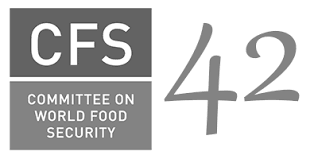
The UN Committee on World Food Security (CFS) is the key body where global decision and policy making on issues of food and nutrition security are held. After a reform process in 2009, the CFS has worked to become a space that promotes multi-stakeholder and inclusive dialogue, with a dedicated mechanism for civil society engagement.
The Civil Society Mechanism (CSM) is
More
|
|
|
|
|
|
|
| Terminology Corner |
| Contributors to this Land Times |
|
|
|
|

